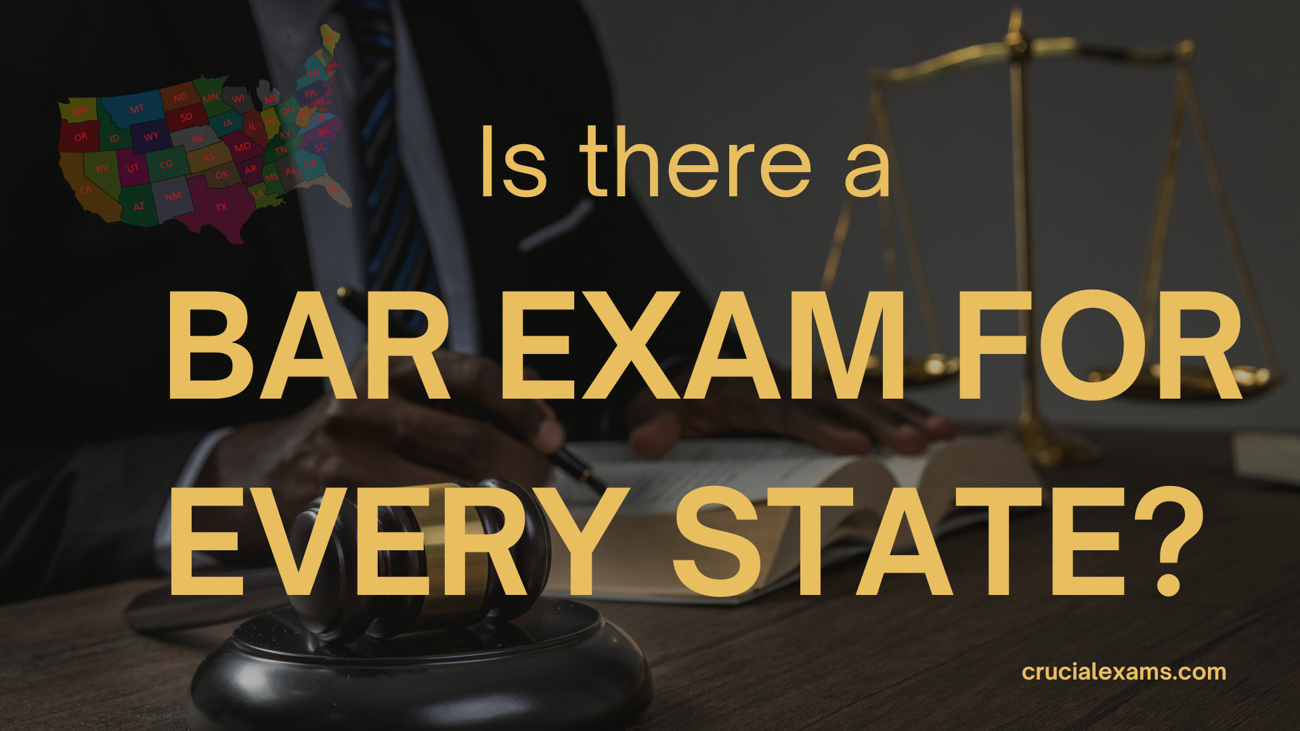Is there a bar exam for every state?

Is There a Bar Exam for Every State?
Becoming a lawyer in the United States is a challenging path that requires passing the bar exam. This crucial test is the key to practicing law, and each state has its own rules about how it’s conducted. While some states have adopted a more unified approach, an important question remains: Is there a bar exam for every state? Let’s take a closer look at how the bar exam works across the country and what aspiring lawyers should be aware of.
State-Specific Bar Exams
Historically, bar exams have been tailored to each state’s unique legal system. Laws vary across state lines, and these exams were designed to assess knowledge and skills specific to the jurisdiction. For example, property laws in Texas differ from those in New York, and bar exams traditionally focused on those distinctions.
This made sense for years because it ensured lawyers fully understood the laws of the state where they practiced. However, it also made things difficult for attorneys looking to relocate or work in more than one state. Faced with these obstacles, lawyers were often forced to take another exam to show they understood the legal details of the new area.
While this system is still in place in some states, there’s been a shift toward a testing model that simplifies matters for those interested in working across multiple jurisdictions. That’s where the Uniform Bar Exam (UBE) comes in.
What is the Uniform Bar Exam (UBE)?
The Uniform Bar Exam (UBE), developed by the National Conference of Bar Examiners (NCBE), aims to streamline the bar exam process. Instead of focusing on laws specific to one area, the UBE tests general principles followed across the nation. This makes it easier for lawyers to transfer their scores between participating states, which often reduces the hassle of becoming licensed in multiple locations.
While the UBE makes the process more flexible, states still have some control. They decide what score applicants need to achieve in order to qualify and may require additional steps to gain licensure.
The UBE consists of three parts: the Multistate Bar Examination (MBE), the Multistate Essay Examination (MEE), and the Multistate Performance Test (MPT). Each section challenges different skills:
- The MBE is a multiple-choice test covering topics like constitutional law, contracts, criminal law, and torts.
- The MEE asks applicants to respond to several essay questions, pushing them to apply legal principles and demonstrate reasoning that’s clear and concise.
- The MPT simulates real-world scenarios lawyers might face, testing skills like organization, critical thinking, and managing tasks effectively under pressure.
The UBE’s focus on "majority law" means applicants don’t need detailed knowledge of the laws in any particular state. Still, adopting the UBE hasn’t been universally accepted, and several states continue to use their own exams.
Which States Require the Bar Exam?
Every state in the U.S. requires aspiring lawyers to pass a bar exam to practice. However, not every state uses the UBE. Currently, 35 jurisdictions, including 33 states, have adopted the UBE, offering applicants more flexibility through score portability. States such as New York and Illinois rely on this model for licensure.
Other states, such as California and Florida, maintain their own bar exams that focus heavily on local topics. These exams often require applicants to master laws unique to that specific area. Supporters of state-specific exams argue that this approach ensures a deep understanding of local legal systems, which some believe the UBE doesn’t offer.
For individuals planning to practice law, understanding the rules of the state they’re aiming for is essential. While some states allow UBE score transfers, others require separate tests with little overlap. Even within UBE states, there are often additional requirements, such as background checks or progressing through ethics courses.
Benefits and Challenges of State-Specific Exams
The varied systems across the United States have both strengths and drawbacks. Bar exams created for individual states ensure lawyers are ready to handle legal matters that are unique to the area. This can be critical for topics like environmental regulations or issues surrounding property ownership that differ state to state.
On the flip side, requiring lawyers to pass state-specific exams can make licensing more time-consuming and expensive, especially for those practicing nationwide. In an era where industries and clients frequently cross state lines, the portability of the UBE offers a more practical setup for many attorneys.
Still, the debate isn’t settled. Critics of the UBE worry that testing on broader principles limits preparedness for challenges based on local laws. This conversation continues to shape how bar exams work across the United States.
Are There Bar Exams Everywhere?
The short answer is yes—every state requires a bar exam to become a lawyer. What differs is how these exams are administered. Some states stick with their traditional approach, relying on tests tailored to their laws. Others have embraced the UBE, offering a more uniform and transferable option.
For aspiring lawyers, knowing the differences is important. Passing the bar isn’t just about succeeding on an exam; it’s about ensuring you fully comply with the licensing requirements of the area where you plan to work.
Whether you’re preparing for the UBE or a state-specific exam, the bar exam is a challenging process that requires dedication and preparation. It’s a rigorous step toward becoming a lawyer, but with careful study and available resources, passing it is possible.
From Maine to California, there’s no shortage of exams and processes to navigate when pursuing a legal career. Regardless of the testing model, the bar exam remains a cornerstone in the path to practicing law in the United States.
This story is tagged under...
Multistate Bar ExaminationInterested in contributing to our blog or partnering with us? Want to share your story of how Crucial Exams helped you? Contact Us .